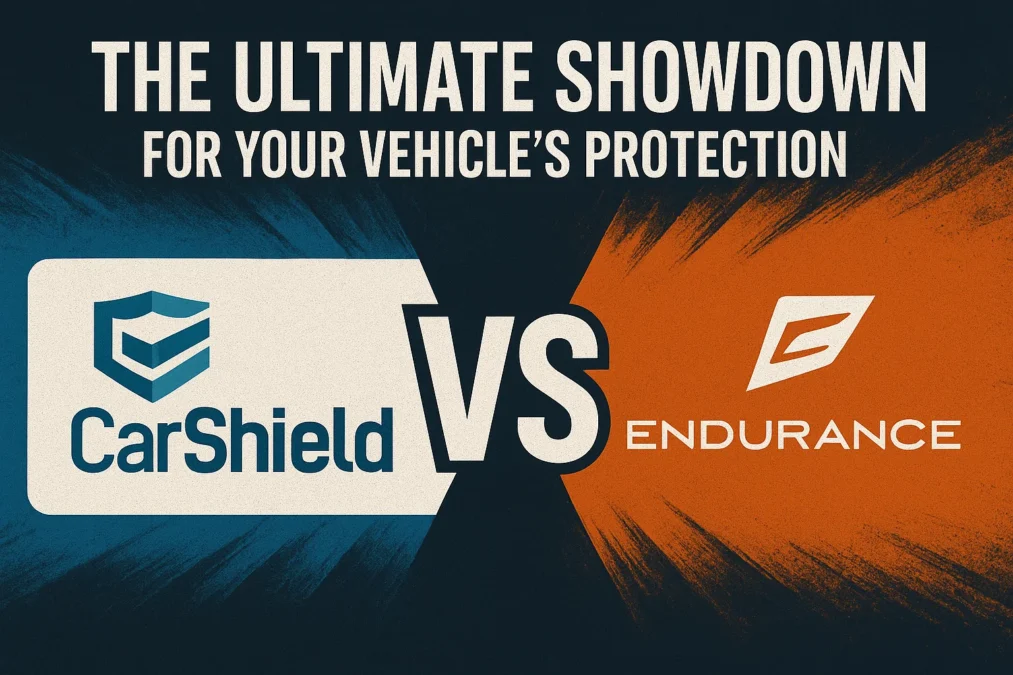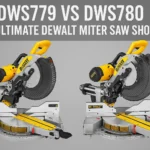You love your car. It gets you to work, on adventures, and through the daily grind. But that love can quickly turn to anxiety when you hear a strange noise from the engine or see a warning light flash on the dashboard. The cost of auto repairs is skyrocketing, with a single major repair often running into the thousands of dollars. This is where vehicle service contracts, commonly known as extended auto warranties, come into play. They act as a financial safety net, protecting you from unexpected and massive repair bills.
In the vast world of auto protection, two names consistently rise to the top: CarShield and Endurance. You’ve seen their ads, heard their jingles, and maybe even gotten a mailer or two. But when it comes down to actually choosing a plan to protect your financial well-being and your vehicle, the question remains: which one is truly better? The CarShield vs Endurance debate is a common one for car owners seeking peace of mind. This isn’t a decision to take lightly, and a simple price comparison won’t give you the full picture. You need to dig deeper into what each company offers, how they handle claims, and what their customers actually say after the sale is complete. This comprehensive guide is designed to do just that. We will dissect every aspect of both providers, from their coverage plans and pricing structures to their customer service reputations and fine print, empowering you to make the most informed decision for your automotive needs.
Understanding the Basics of Auto Protection Plans
Before we dive headfirst into comparing these two industry giants, it’s crucial to understand what we’re actually dealing with. Many people use the term “extended warranty,” but that’s not entirely accurate. A true warranty is backed by a manufacturer and comes with a new car. What companies like CarShield and Endurance offer are technically called “vehicle service contracts.” Think of them as a form of insurance for your car’s major mechanical components. You pay a monthly or annual premium, and in return, the company agrees to pay for covered repairs (after a small deductible) at a network of licensed repair facilities.
These plans are not one-size-fits-all. They come in a variety of tiers, typically named something like Powertrain, Stated Component, or Exclusionary (Bumper-to-Bumper). A powertrain plan is the most basic and affordable, covering only the engine, transmission, and drive axles. A stated component plan will list every single part it covers, which can be dozens of items. An exclusionary plan is the most comprehensive; it covers everything except for a specific list of excluded items, much like a new car warranty. The right plan for you depends entirely on your vehicle’s age, mileage, your budget, and your personal risk tolerance. Understanding this spectrum is the first step in any comparison, including the central question of CarShield vs Endurance.
Another key concept is the provider versus the administrator. Some companies, like Endurance, are direct providers. This means they underwrite their own contracts and handle the claims process directly. Others, like CarShield, primarily act as administrators. They sell the plans and manage customer service, but the contracts are actually backed by a third-party insurer. This distinction can have subtle but important implications for the claims process and financial stability, which we will explore later. Knowing the basics arms you with the right questions to ask as we break down the specifics of each contender.
A Deep Dive into CarShield’s Offerings
CarShield is arguably one of the most recognizable names in the auto protection industry, thanks to its massive marketing budget and memorable television commercials. They position themselves as a provider of affordable and flexible coverage options for a wide range of vehicles, including high-mileage cars and even motorcycles. Their brand is built on accessibility and a straightforward sales process. Let’s peel back the layers of the marketing to see what CarShield truly delivers to its customers.
CarShield offers six main plans: Diamond (Bumper-to-Bumper), Platinum (Covers major systems), Gold (Powertrain plus), Silver (Powertrain), Aluminum (Stated Component), and Motorcycle/ATV. This range allows them to cater to customers with different budgets and coverage needs. A standout feature often promoted by CarShield is their flexibility concerning vehicle age and mileage. They are generally more willing to cover older vehicles with higher odometer readings than many competitors, which is a significant advantage for owners of well-loved cars. Their plans also come with standard perks like 24/7 roadside assistance, trip interruption coverage, and a rental car benefit while your vehicle is in the shop for a covered repair.
However, the CarShield experience often receives mixed reviews. On one hand, many customers report a hassle-free claims process and appreciate the financial salvation a plan provided when a major component failed. On the other hand, a significant number of complaints cite difficulties with claims approvals, long wait times on customer service lines, and misunderstandings about what is actually covered. It’s important to understand that as an administrator, CarShield’s job is to sell the plan and manage the relationship, but the final approval for a costly repair comes from the third-party insurer backing the contract. This can sometimes lead to a disconnect between what the sales agent promised and what the claims adjuster authorizes.
A Comprehensive Look at Endurance Auto Warranty
Endurance positions itself as a more premium and direct alternative in the vehicle service contract market. They are a direct provider, meaning they underwrite their own contracts. This allows them to have more control over the entire customer journey, from sale to claim resolution. Endurance often markets itself to owners of newer vehicles or those seeking the highest level of coverage with fewer potential hassles. Their approach is less about flashy ads and more about emphasizing stability and comprehensive protection.
Endurance offers a similarly tiered lineup of plans: Supreme (Exclusionary, like bumper-to-bumper), Superior (Covers over 8,000 components), Secure Plus (Major components plus some electronics), Secure (Basic powertrain), and a special Select Premier plan for higher-mileage vehicles. A major differentiator for Endurance is its complimentary year of Elite Benefits, which includes extra perks like tire repairs/replacements, key fob replacement, collision discount, and total loss protection. These are valuable add-ons that provide coverage beyond just mechanical breakdowns. Furthermore, Endurance is unique in that it is directly accredited by the Better Business Bureau (BBB) and has received several awards, which adds a layer of credibility.
As a direct provider, Endurance handles all claims internally. Customers and repair shops often report a more streamlined process because there’s no middleman or third-party insurer to coordinate with. This can lead to faster authorization and repair times. Endurance also allows you to choose any ASE-Certified mechanic or repair facility you trust, including dealerships, providing tremendous flexibility. While no company is without complaints, Endurance’s tend to focus more on the higher cost of plans rather than claims denials, suggesting that those who pay the premium generally get the coverage they expected.
Head-to-Head Comparison: Coverage and Plans
When evaluating CarShield vs Endurance on coverage, the battle is incredibly close on the surface. Both offer a spectrum from basic powertrain to near-comprehensive exclusionary coverage. The devil, as always, is in the details. For a driver seeking the most robust protection possible, Endurance’s exclusionary “Supreme” plan is often considered one of the best in the industry, mirroring a manufacturer’s warranty very closely. CarShield’s “Diamond” plan is also highly comprehensive, but it’s essential to get a sample contract and compare the lists of excluded components for your specific vehicle.
A key area where they differ is in their approach to high-mileage vehicles. CarShield has built a reputation for being more accommodating, often offering plans for cars with well over 100,000 miles. Endurance also covers higher-mileage cars but typically through its specific “Select Premier” plan, which may have different terms and conditions than its standard offerings. For owners of older cars, CarShield might present more immediate options, but it’s always worth getting a quote from both. For newer cars, Endurance’s comprehensive plans are frequently praised for their depth of coverage.
Another critical factor is the transparency of coverage. Endurance is known for providing sample contracts easily, allowing you to see the exact list of covered and excluded parts before you buy. While CarShield also provides contracts, some customers have reported that understanding the full scope of coverage required more diligent questioning during the sales process. In the CarShield vs Endurance matchup on coverage, your choice may boil down to the specific age of your car and how meticulously you want to examine the fine print before signing up.
Analyzing the Cost: Premiums and Deductibles
Price is often the primary deciding factor for consumers, but it’s dangerous to look at price in a vacuum. The cost of a plan from either CarShield or Endurance is influenced by a multitude of factors: your vehicle’s make, model, year, mileage, your location, the coverage level you choose, and your deductible amount. Generally, speaking, CarShield has built its brand on being the more affordable option. Their monthly premiums are often lower, making them an attractive choice for budget-conscious consumers.
Endurance, on the other hand, typically commands higher premiums. You are often paying for the peace of mind that comes with a direct provider, highly comprehensive coverage, and those valuable Elite Benefits. It’s the classic “you get what you pay for” scenario. A lower monthly payment from one provider might look good on your bank statement, but if it leads to a higher likelihood of claim disputes or uncovered repairs, the real cost could be much higher. Conversely, a higher premium might feel like a stretch, but if it seamlessly covers a $4,000 transmission job, it pays for itself many times over.
Deductibles are another crucial part of the cost equation. Both companies offer a range of deductible options, commonly $0, $100, or $200 per repair visit. Choosing a higher deductible will lower your monthly premium, while a $0 deductible will raise it. It’s a personal calculation based on how much risk you’re willing to assume out-of-pocket for each repair. When comparing quotes in the CarShield vs Endurance debate, ensure you are comparing plans of similar coverage levels and identical deductibles to get a true apples-to-apples comparison of the cost.
Customer Service and Claims Process
This is where the rubber meets the road. A plan is only as good as the service you receive when your car breaks down. The claims process is the most critical touchpoint and a major differentiator between these two companies. Endurance, as a direct provider, controls the entire process. You call Endurance directly to file a claim, they assign an adjuster, and that same company authorizes the payment. This integrated system can reduce communication errors and speed up approvals, a fact often noted in positive customer reviews.
CarShield’s process involves an extra step. You call CarShield to initiate a claim, but the final approval comes from the third-party insurer that underwrites your specific contract. This can sometimes lead to longer wait times for authorization or confusion if the repair shop is communicating with CarShield, who then has to communicate with the insurer. While many CarShield claims are processed smoothly, a higher volume of customer complaints revolves around delays and frustrations during this process compared to Endurance.
Both companies have their fair share of positive and negative reviews online. Endurance’s BBB profile is strong, featuring an A+ accreditation and grade, which reflects their effort to resolve customer issues. CarShield has a lower BBB rating, with a significant number of complaints related to service issues. It’s important to read these reviews critically, as people are more likely to post about a negative experience than a positive one. However, the pattern suggests that Endurance has invested more in building a reputation for reliable customer service, while CarShield’s strength lies in accessibility and affordability, sometimes at the expense of service consistency.
Additional Benefits and Perks
Beyond just covering repairs, both companies sweeten the deal with additional benefits. These perks can add significant value and tip the scales in a close decision. As mentioned, Endurance offers a standout suite of “Elite Benefits” for the first year at no extra cost. This package includes up to $500 in total loss protection, $1,000 in collision discount rewards, $250 for key fob replacement, up to $100 per tow, and even $50 per day for up to three days of rental car coverage during a repair. These benefits address common automotive headaches that fall outside a standard mechanical repair contract.
CarShield also includes standard benefits with its plans. These typically include 24/7 roadside assistance (towing, tire change, lockout service, fuel delivery), trip interruption coverage (for meals and lodging if your car breaks down far from home), and a rental car allowance. While valuable, this package is more standard across the industry and doesn’t quite match the breadth of Endurance’s first-year Elite offer. However, for a driver primarily concerned with mechanical breakdowns, these standard benefits are perfectly adequate and provide a essential safety net.
The value of these extras depends on your lifestyle. If you do a lot of road trips, trip interruption coverage is crucial. If you have a newer car with a expensive key fob, that benefit from Endurance is a huge plus. In the CarShield vs Endurance consideration, if the coverage and price are very close, these additional perks could be the deciding factor that makes one plan offer more overall value for your specific situation than the other.
Flexibility and Choice of Repair Facilities
A major concern for many car owners is whether they can use their trusted mechanic or if they are forced to go to a specific chain shop. Fortunately, both CarShield and Endurance score high marks in this department. They both allow you to choose any licensed repair facility you prefer, including your local dealership. This is a significant advantage, as it means you don’t have to sacrifice your relationship with a mechanic you know and trust for the sake of having a protection plan.
The process is simple for both. You take your vehicle to your chosen ASE-Certified technician. They diagnose the problem and then call the respective company’s claims department. The claims adjuster will discuss the repair with the mechanic, authorize the covered repairs, and then you will simply pay your chosen deductible directly to the shop. The protection company pays the shop the remainder directly. This flexibility is a standard across the top providers in the industry and is a key feature that separates reputable companies from less scrupulous ones.
This level of choice removes a significant point of friction from the experience. It means that the CarShield vs Endurance decision isn’t about who has a better network of shops, because you can use the same shop regardless of which provider you choose. Instead, it brings the comparison back to the core issues: the clarity of the contract, the efficiency of the claims process, the cost, and the customer service you receive when coordinating between your shop and the provider.
Company Reputation and Industry Standing
Reputation is built over time through customer experiences, financial stability, and industry recognition. In this arena, Endurance generally holds a more prestigious position. As noted, they are directly accredited by the BBB with an A+ rating and have been in business since 2006. They have also received numerous industry awards and are often featured in leading consumer publications. Their status as a direct provider suggests a certain level of financial strength and long-term stability, as they are assuming their own risk.
CarShield is a massive and legitimate company that has been protecting vehicles since 2005. They have helped countless customers pay for expensive repairs. However, their reputation is more mixed. They have a lower rating with the BBB due to a high volume of customer complaints, though it’s worth noting that they have also closed a very high number of complaints. Their business model as an administrator means their financial stability is also tied to their third-party insurers. They are a well-known and active player, but their reputation is often seen as that of a value leader rather than a premium service provider.
When considering CarShield vs Endurance, think about what a company’s reputation means to you. Does an A+ BBB rating and direct underwriting give you more confidence? Or are you comfortable with a larger company that may have more service complaints but offers a lower price point? Researching recent customer reviews on multiple platforms (like the BBB, Trustpilot, and Google) can give you a sense of current trends in customer satisfaction for both companies.
Ground Advantage vs Priority Mail: The Ultimate Guide to Choosing the Right USPS Service
Making the Final Decision: Which One is Right for You?
So, after all this analysis, who wins the battle of CarShield vs Endurance? The truth is, there is no single winner. The best choice is entirely dependent on your personal circumstances, priorities, and vehicle. To make your decision, you need to honestly assess what you value most. Are you looking for the absolute lowest monthly payment and have an older, high-mileage vehicle? Then getting a quote from CarShield is a very logical step. Their flexibility with vehicle eligibility and competitive pricing is their strongest selling point.
Conversely, if you own a newer vehicle, want the most comprehensive and hassle-free coverage available, and value customer service and extra perks, Endurance is likely the superior choice. The higher premium buys you a more seamless experience, the security of dealing directly with the provider, and a first-year benefits package that is unrivaled in the industry. It’s designed for the driver who wants to replicate the new car warranty experience for as long as possible.
The most powerful tool at your disposal is the quote process. Get personalized quotes from both CarShield and Endurance for the same level of coverage and the same deductible. Read the sample contracts carefully. Pay attention to how the sales agents treat you—are they pressuring you to buy immediately or are they patiently answering your questions? This hands-on research, combined with the knowledge of their core differences, will guide you to the right decision for your car and your wallet.
Conclusion
The journey through the CarShield vs Endurance landscape reveals two powerful but distinct options for vehicle protection. CarShield emerges as the accessible, affordable champion for a wide range of vehicles, particularly those that are older or have higher mileage. Its strength is its flexibility and competitive pricing, though this can sometimes come with trade-offs in customer service consistency. Endurance establishes itself as the premium, service-oriented choice, offering top-tier coverage, valuable perks, and a streamlined claims process as a direct provider, ideal for owners seeking maximum peace of mind for their newer vehicles.
Ultimately, the “best” choice is not universal but personal. It hinges on a clear-eyed evaluation of your car’s needs and your own priorities. Do your homework, get multiple quotes, read the fine print, and trust your research. Whether you choose the widespread accessibility of CarShield or the comprehensive security of Endurance, taking the step to protect yourself from costly repairs is a smart investment in your financial future and your driving peace of mind.
Frequently Asked Questions (FAQ)
What is the main difference between CarShield and Endurance?
The core difference lies in their business models. Endurance is a direct provider, meaning it underwrites its own contracts and handles all claims internally. This often leads to a more integrated and streamlined process. CarShield primarily acts as an administrator, selling plans that are backed by third-party insurers, which can sometimes add a layer of complexity to the claims process. This fundamental difference influences their pricing, customer service approach, and the overall customer experience.
Is CarShield or Endurance better for high-mileage cars?
CarShield often has a reputation for being more accommodating for high-mileage vehicles. They frequently offer coverage options for cars with well over 100,000 miles, which is a key part of their market positioning. While Endurance also covers higher-mileage cars through its specific Select Premier plan, CarShield’s general flexibility and wider availability of plans for older cars make it a strong contender for owners of high-mileage vehicles.
Does CarShield have more customer complaints than Endurance?
Yes, based on publicly available data from the Better Business Bureau (BBB) and other consumer sites, CarShield has a higher volume of customer complaints than Endurance. Endurance holds an A+ rating and accreditation from the BBB, while CarShield has a lower rating. Many complaints for CarShield relate to the claims process and customer service, while Endurance’s complaints more commonly cite higher costs. It’s important to remember that both companies have thousands of customers, and many have had positive experiences.
Can I use my own mechanic with both CarShield and Endurance?
Absolutely. This is a significant advantage of both companies. You are free to choose any ASE-Certified mechanic or repair facility, including your local dealership. You are not restricted to a specific network of shops. The process involves your chosen mechanic diagnosing the issue and then calling the claims department of either CarShield or Endurance for authorization before beginning the covered repairs.
Which company offers better additional benefits?
Endurance is generally considered the leader in this category due to its complimentary Elite Benefits package, which is free for the first year with any plan. This includes extras like key fob replacement, tire repair, total loss protection, and collision discount rewards that go far beyond standard mechanical breakdown coverage. CarShield offers standard benefits like roadside assistance, rental car reimbursement, and trip interruption coverage, which are solid but not as extensive as Endurance’s first-year offer.
How do I get a quote from CarShield and Endurance?
Getting a quote from both is easy and essential for a fair comparison. You can visit their official websites—CarShield.com and EnduranceAuto.com—and use their online quote tools. You will need to provide details about your vehicle (VIN, make, model, year, mileage) and your contact information. You can also call them directly. It’s highly recommended to get quotes from both for similar levels of coverage to see which offers the best value for your specific situation.
Comparison Table
| Feature | CarShield | Endurance |
|---|---|---|
| Business Model | Administrator (Uses 3rd-party insurers) | Direct Provider (Underwrites its own plans) |
| Best For | Budget-conscious owners, older/high-mileage vehicles | Newer vehicles, comprehensive coverage, customer service |
| BBB Rating | Lower (High complaint volume) | A+ (Accredited) |
| Key Advantage | Lower cost, flexible vehicle eligibility | Streamlined claims, Elite Benefits, direct control |
| Additional Benefits | Standard (Roadside, rental, trip interruption) | Elite Benefits (1st year free: key fob, tires, etc.) + Standard |
| Repair Facilities | Any ASE-Certified mechanic | Any ASE-Certified mechanic |
| Customer Service | Mixed reviews, can be slow | Generally more positive reviews for claims handling |
Quotes
“The peace of mind that comes with knowing a major repair won’t bankrupt you is the entire value proposition of an auto protection plan. The choice between CarShield and Endurance ultimately comes down to whether you prioritize upfront cost or seamless service.” — Auto Industry Analyst
“Don’t just buy a plan based on a monthly payment. Read the contract. The cheapest plan is worthless if it doesn’t cover the repair you need. Both CarShield and Endurance have detailed contracts—your job is to understand them.” — Consumer Advocacy Group Spokesperson



